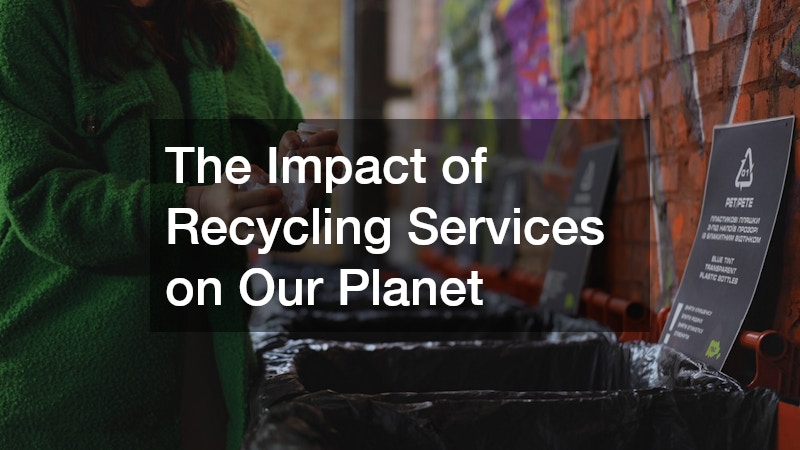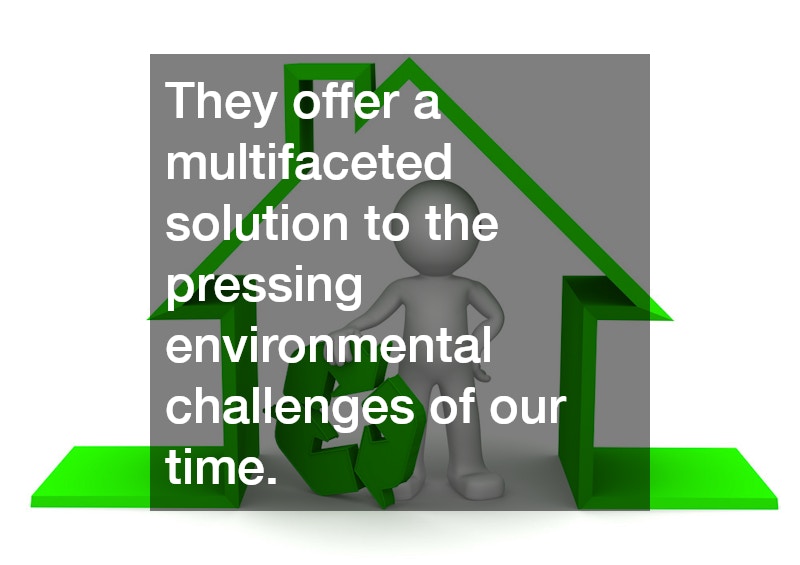
In an era defined by environmental consciousness, recycling services have become a critical pillar in global efforts to preserve our planet. As concerns about climate change, resource depletion and waste accumulation continue to grow, the value of well-organised waste management systems cannot be overstated.
From reducing landfill overflow to conserving natural resources, the environmental and societal benefits of recycling are far-reaching. Australia, like many developed nations, has made strides in promoting sustainable practices through public education and infrastructure development. Still, the collective impact of individual and industrial engagement with recycling services remains at the heart of lasting change.
Reducing Landfill Waste & Environmental Pollution
Landfills are a growing concern for many regions worldwide, especially in areas where space is limited or environmental regulations are tightening. By diverting waste from landfills, recycling services help reduce the environmental burden associated with toxic runoff, methane emissions and soil contamination. Plastics, metals and electronic waste, when improperly disposed of, can leach hazardous substances into surrounding ecosystems, compromising biodiversity and public health.
Recycling plays a vital role in mitigating these outcomes. Materials such as paper, cardboard, aluminium and glass are processed and reintroduced into the supply chain, decreasing the demand for virgin resources. This loop significantly slows down the accumulation of refuse in landfills and ensures fewer pollutants make their way into waterways and natural habitats. Moreover, as recycling technology becomes more sophisticated, the ability to handle a broader range of materials ensures even more waste is kept out of landfill.
Conserving Natural Resources & Reducing Energy Usage
The extraction and processing of raw materials consume vast amounts of energy and place substantial strain on the Earth’s natural systems. Mining for metals, logging for timber and drilling for petroleum not only disrupt local environments but also contribute heavily to carbon emissions. By relying more on recycled materials, these activities can be dramatically reduced.
This reduced energy consumption not only conserves fossil fuels but also lowers greenhouse gas emissions, contributing to the fight against global warming. As demand for sustainable practices grows among consumers and corporations alike, the reliance on effective recycling services will become increasingly important in reducing the ecological footprint of modern economies.
Driving Economic Growth & Creating Employment Opportunities
While often framed solely as an environmental solution, recycling services also carry substantial economic benefits. The recycling industry supports a wide array of jobs, from waste collection and sorting to materials processing and product manufacturing. In fact, recycling typically generates more employment per tonne of waste than landfill or incineration operations.
Moreover, the materials recovered through recycling have value. By processing and reselling these materials, municipalities and businesses can generate revenue that helps offset the costs of waste management. This creates a self-sustaining model where economic and environmental objectives align.
Investment in recycling infrastructure can also lead to technological innovation. Advanced sorting systems, AI-powered material identification and decentralised recycling hubs are all being developed to enhance efficiency and accessibility. Such progress ensures that recycling remains a viable solution even as the types and volumes of waste continue to evolve.
Encouraging Responsible Consumption & Community Engagement
Perhaps one of the most powerful impacts of recycling services is the way they shape public attitudes and behaviours. When communities have access to reliable recycling options, individuals become more aware of their consumption habits and the consequences of their waste. This awareness often leads to broader lifestyle changes, such as reducing single-use plastics, choosing sustainably packaged goods or participating in local clean-up initiatives.
Recycling services also serve as an educational tool, reinforcing the importance of environmental stewardship across generations. Schools, councils and community groups frequently collaborate on awareness campaigns and initiatives, helping embed sustainable values into the cultural fabric. In turn, these efforts build social cohesion, with individuals working together toward a shared goal of protecting the environment.
The Path Forward: Strengthening Systems for Greater Impact
Although the benefits of recycling services are clear, there remain significant challenges to be addressed. Contamination of recyclables, inconsistencies in accepted materials and limited market demand for certain recycled products can hinder effectiveness. To overcome these issues, ongoing investment in infrastructure, public education and policy development is essential.
Technological advancements and circular economy principles also hold promise for the future. By designing products with recyclability in mind and embracing models that minimise waste from the outset, industries can further support the goals of recycling services. Such systemic shifts will ensure that sustainability is not just a trend but a lasting transformation.
Recycling Services as Catalysts for Environmental Change
Recycling services are more than a convenient way to dispose of waste—they are foundational to the health of our planet. Through landfill diversion, resource conservation, economic stimulation and community education, they offer a multifaceted solution to the pressing environmental challenges of our time. Their success, however, relies on the continued commitment of individuals, industries and governments to support and improve these systems. As awareness grows and technologies evolve, the potential for recycling services to create a cleaner, more sustainable world becomes not only a possibility but a necessary reality.
.



